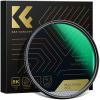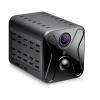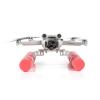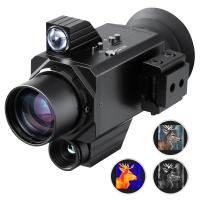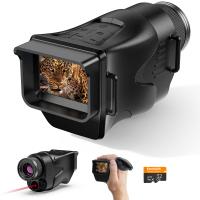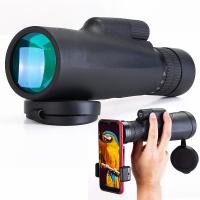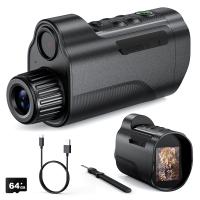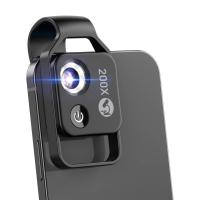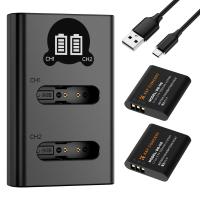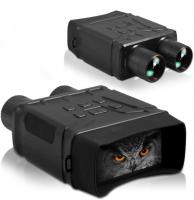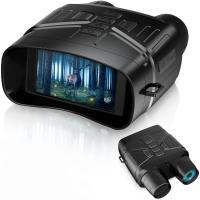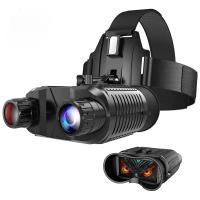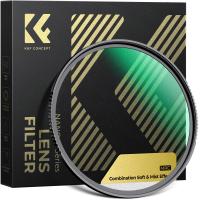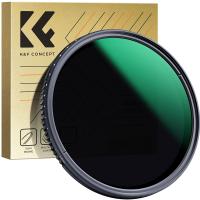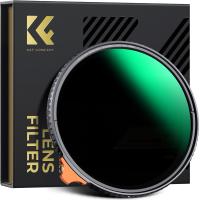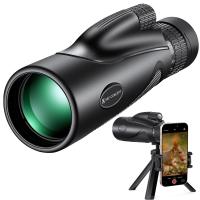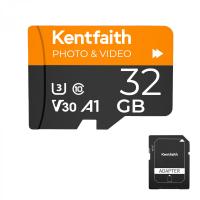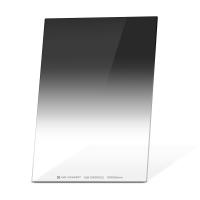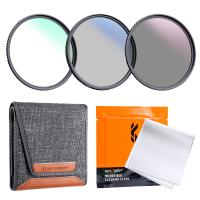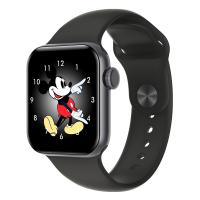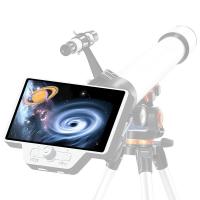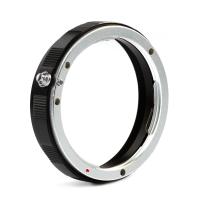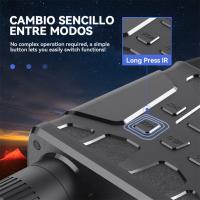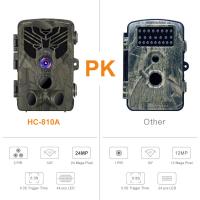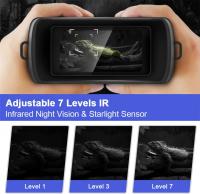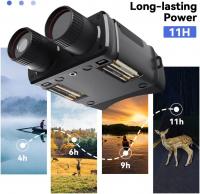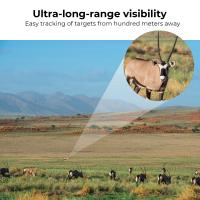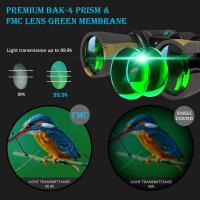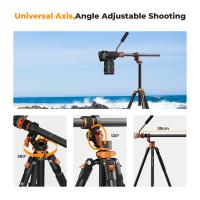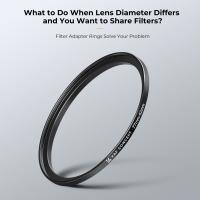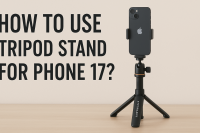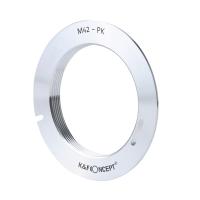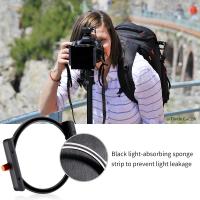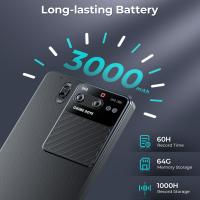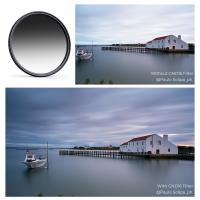What Is The Best Night Vision Monocular?
When it comes to finding the best night vision monocular, the sheer number of options on the market can make it a challenging task. Whether you're a nature enthusiast, a camper, a hunter, or simply an individual intrigued by nocturnal activities, choosing the right device hinges on your specific needs. Night vision technology has advanced rapidly in recent years, leading to more accessible tools with greater reliability and functionality. If you’re navigating this landscape for the first time, this guide will provide you with an in-depth understanding of the features, factors, and nuances that define the best night vision monocular for varying purposes.
Understanding Night Vision Technology
Night vision devices amplify ambient light, such as moonlight or starlight, to help you see in low-light or completely dark conditions. They fall into two main categories: image intensification (night vision proper) and thermal imaging. Most night vision monoculars use image intensification, which amplifies existing light and converts it into an electronic signal displayed on a phosphor screen. This is why the visuals often appear in a green hue—green screens are easier for the human eye to interpret in low-contrast environments.
Modern monoculars also vary across generations of technology, from Gen 1 to Gen 4:
- Gen 1: The most basic and affordable; works well in environments with some ambient lighting but struggles in pure darkness.
- Gen 2 and Gen 3: Offer improved resolution, better performance in complete darkness, and longer lifespan. Ideal for intermediate to advanced users.
- Gen 4 (and advancements in Gen 3): The highest quality, featuring enhanced clarity, resolution, and light detection in the darkest conditions, but these are expensive and primarily used for military and tactical purposes.
Key Features to Consider in a Night Vision Monocular
When determining the best night vision monocular for your use case, consider the following features:
1. Magnification and Zoom
The magnification factor determines how close the object will appear through the monocular. A common range is from 1x to 10x. Keep in mind that higher magnification isn’t always better; a high zoom level can reduce image clarity, especially without proper stabilization.
2. Infrared (IR) Illuminator
Many monoculars include an IR illuminator, which provides infrared light that is invisible to the human eye but enhances visibility in total darkness. Devices with built-in IR illuminators are vital for environments devoid of ambient light.
3. Resolution
A high resolution ensures sharper, more detailed images, which is especially important for identifying targets or navigating complex terrain. Keep an eye on the resolution values—expressed in lines per millimeter (lp/mm)—to understand the level of detail you can expect.
4. Detection Range
The detection range specifies how far the device can see in the dark. High-end monoculars can detect objects up to a distance of 1,000 yards, while entry-level devices may struggle beyond 100 yards.
5. Battery Life
Night vision monoculars rely on batteries, so it’s crucial to choose a model with long-lasting battery performance if you plan prolonged use. Devices with adjustable power settings or energy-saving modes can extend usage time.
6. Size and Weight
Portability is often a top concern if you intend to use the monocular during hiking, hunting, or traveling. Look for lightweight and compact models that won’t burden you during extended outings.
7. Durability
A rugged, weatherproof design is essential for outdoor use. Many high-end monoculars feature shock resistance, water resistance, or even complete waterproofing, making them suitable for challenging environments.
8. Mounting Options
Some monoculars can be mounted on helmets, rifles, or tripods, offering added convenience for tactical operations, hunting, or stationary observation.
Top Use Cases for Night Vision Monoculars
1. Wildlife Observation and Nature Exploration:
Night vision monoculars are perfect for observing nocturnal animals and their behavior without disturbing them. Look for models with moderate magnification and high resolution to capture fine details.
2. Hunting:
For hunters, an effective night vision monocular can make hunting safer and more successful. A combination of long detection range, clarity, and mounting capability can help track targets in darkness.
3. Surveillance and Security:
Monoculars cater to professionals in the monitoring and security sectors by allowing discreet and effective surveillance in low-light conditions. Devices with built-in IR illuminators and enhanced durability are ideal for the job.
4. Camping and Hiking:
During nocturnal adventures, night vision can serve as an invaluable tool. Compact, lightweight models with decent range and performance strike the right balance for outdoor enthusiasts.
5. Navigation in Darkness:
Whether you’re navigating a remote trail or piloting a boat in low-light conditions, night vision monoculars help users gain spatial awareness. Waterproof models are particularly useful for marine activities.
Best Night Vision Monoculars Currently Available
Although it’s impossible to pick a one-size-fits-all "best" monocular due to varying needs, here are some highly regarded options catering to a range of budgets and preferences:
1. ATN PVS14-3 Night Vision Monocular (Gen 3)
A military-grade option built for serious users. Exceptional image clarity, infrared capability, and mounting versatility make it suitable for security, tactical use, and advanced navigation.
2. Sightmark Ghost Hunter 5x50 (Gen 1)
This is an affordable yet reliable solution for hobbyists, featuring 5x magnification and decent performance in semi-lit environments. The built-in IR illuminator aids users in darker settings.
3. Bushnell Equinox Z Digital Night Vision Monocular (Digital)
This digital model offers versatility with day-to-night functionality, a solid zoom range, and video recording. While not ideal for complete darkness without IR, it delivers excellent value for money in entry-level applications.
4. Pulsar Helion XP Thermal Monocular
For the ultimate in thermal imaging, Pulsar Helion is a top-tier option. Though not a traditional night vision monocular, it uses heat detection to produce precise visuals regardless of light conditions. It’s particularly useful for hunters and search-and-rescue operations.
5. Night Owl NOXM50 Night Vision Monocular (Gen 1)
A widely acclaimed model among budget-friendly monoculars. Though Gen 1 technology has its limitations, this device offers a good blend of affordability, reasonable resolution, and usability in moderately lit environments.
How to Determine Which Option is Best for You
Selecting the right night vision monocular depends on purpose and budget. For casual users seeking a cost-effective solution, a Gen 1 or digital model such as the Bushnell Equinox Z or Night Owl NOXM50 will suffice. However, professionals who need higher clarity, longer detection ranges, and advanced settings should consider investing in mid-to-high-end models such as the ATN PVS14-3 or Pulsar Helion.
Take the time to evaluate how frequently you’ll use the device, the environments you expect to navigate, and whether features like video recording, waterproofing, or advanced resolution are essential. A well-researched purchase guarantees years of reliable service.
Tips for Effective Use of a Night Vision Monocular
To maximize the utility of your chosen device, keep the following tips in mind:
- Use the lowest acceptable IR intensity to preserve battery life and reduce potential visibility to animals or other people.
- Regularly clean the lens to maintain clarity. Use a microfiber cloth and avoid abrasive cleaning materials.
- Store the device in a protective case to prevent damage from moisture, dust, or accidental drops.
- Rechargeable batteries can save money and ensure readiness during extended outings.
Final Thoughts
Night vision monoculars open up a world of possibilities, helping users experience their surroundings in ways the naked eye simply cannot. Whether you’re venturing into the wilderness or ensuring your property remains secure at night, the right monocular can significantly enhance your nocturnal experience. By evaluating your specific needs alongside the features and capabilities outlined in this guide, you’ll be well-equipped to find a night vision monocular that meets—and exceeds—your expectations.

